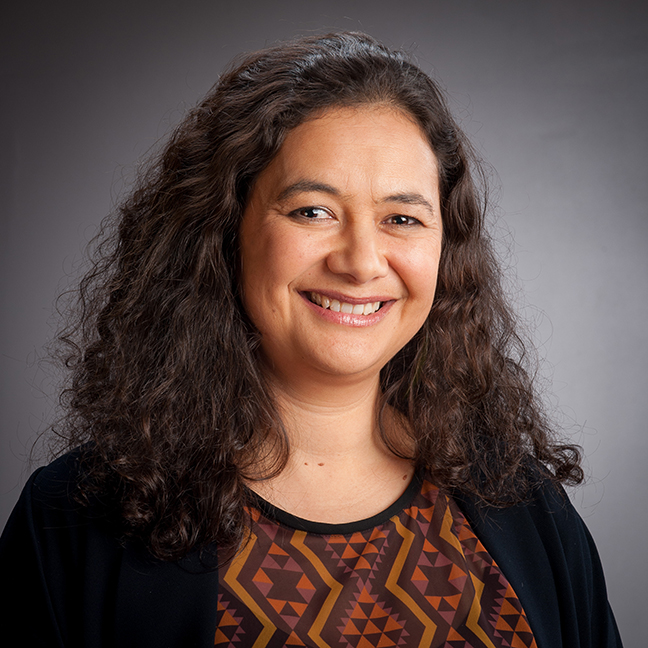Lisa Te Morenga

2018: Dr Lisa Te Morenga, Victoria University of Wellington, School of Health, has been awarded a Rutherford Discovery Fellowship for research entitled: ‘Naku te rourou, nau te rourou, ka oranga ai te iwi (With my food basket and your food basket the people will be well)’.
Biography
Dr Lisa Te Morenga (Ngapuhi, Ngāti Whātua, Te Rarawa) is a Senior Lecturer in Māori Health and Nutrition in the School of Health at Victoria University of Wellington. She specialises in the role of diet in the treatment and prevention of obesity, diabetes and cardiovascular disease, with a particular interest in nutrition and hauora (Māori health). She completed a doctorate in human nutrition at the University of Otago in 2010. She was subsequently a Senior Research Fellow and Associate Dean Māori for the University of Otago Division of Sciences, and has received funding from the Health Research Council, the Riddet Institute Centre of Research Excellence, and Healthier Lives National Science Challenge. Dr Te Morenga combines her research with community and international outreach, and has worked with organisations including the World Health Organisation, Toi Tangata, Ngāti Porou Hauora, the National Health Foundation, and the Royal Society Te Apārangi.
Summary
A balanced, nutrient-rich diet is a key determinant of health and a pivotal strategy for the prevention of non-communicable diseases such as obesity, diabetes, and cardiovascular diseases. However, many factors undermine public confidence in nutrition science, such as the vested interests of the food industry, conflicting messages about nutrition, and research methods that are subject to participant reporting bias and privilege dominant population groups. These barriers to eating well disproportionately affect socioeconomically disadvantaged groups, including Māori and Pacific peoples.
Dr Te Morenga’s research programme will take a multipronged approach to tackle these issues, combining studies on sugars, carbohydrates and wholegrain foods, and participatory health research with Māori communities. Firstly, she will investigate the impacts of daily consumption of different types of wholegrain foods (visible grains vs finely ground grains) for people with type 2 diabetes and prediabetes. These findings will help food manufacturers to improve the quality of manufactured wholegrain foods, and provide advice to dietitians on the best types of wholegrains foods to recommend to patients at risk of metabolic disease. Secondly, Dr Te Morenga will develop new methods to measure and monitor sugar intake levels. The planned biomakers will provide better evidence of which health and dietary interventions are most effective at reducing sugar intake. Finally, she will work with Māori communities to co-design effective and culturally-appropriate interventions that support better diet and health amongst whānau and rangatahi (youth). These projects will help New Zealanders to make dietary choices that support a healthy life.
